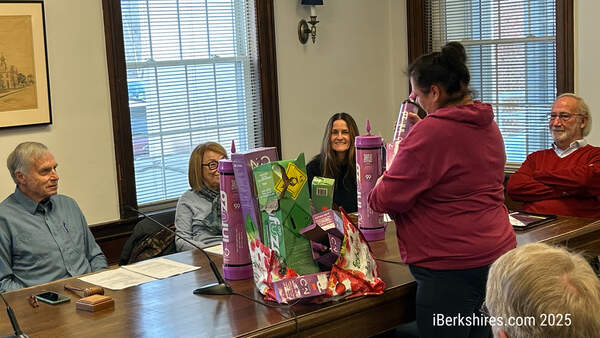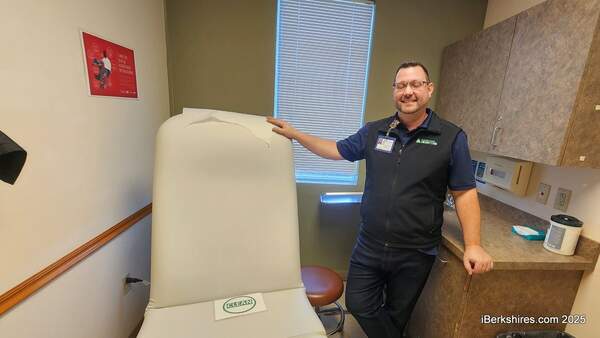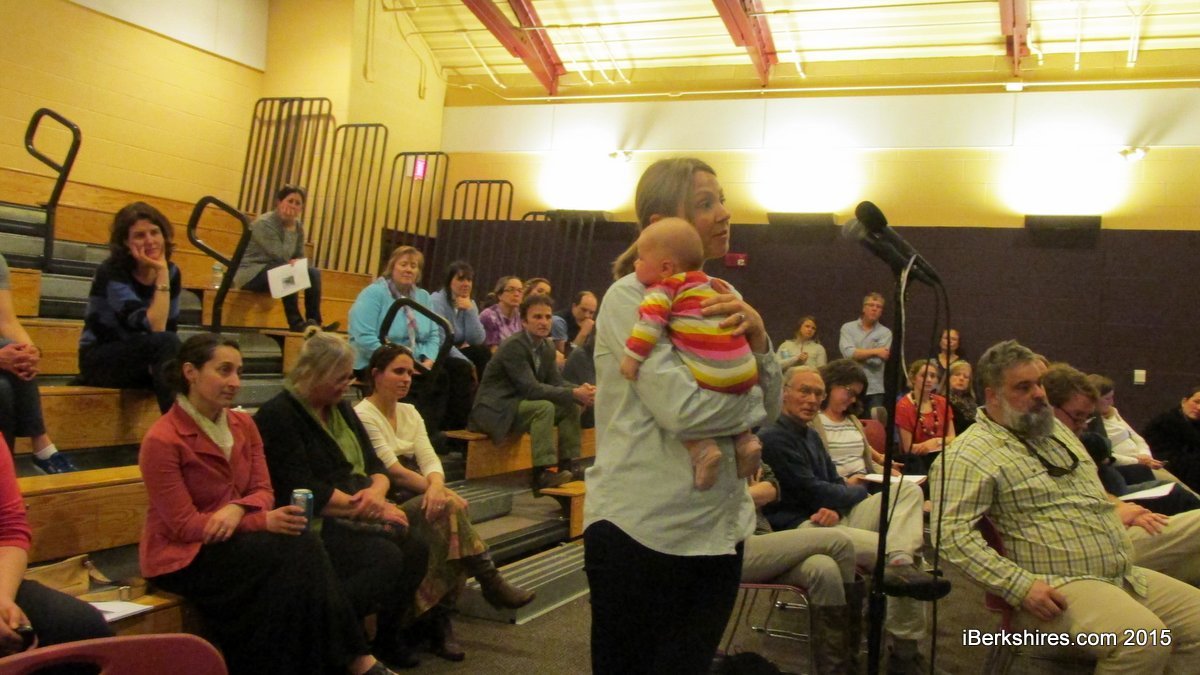
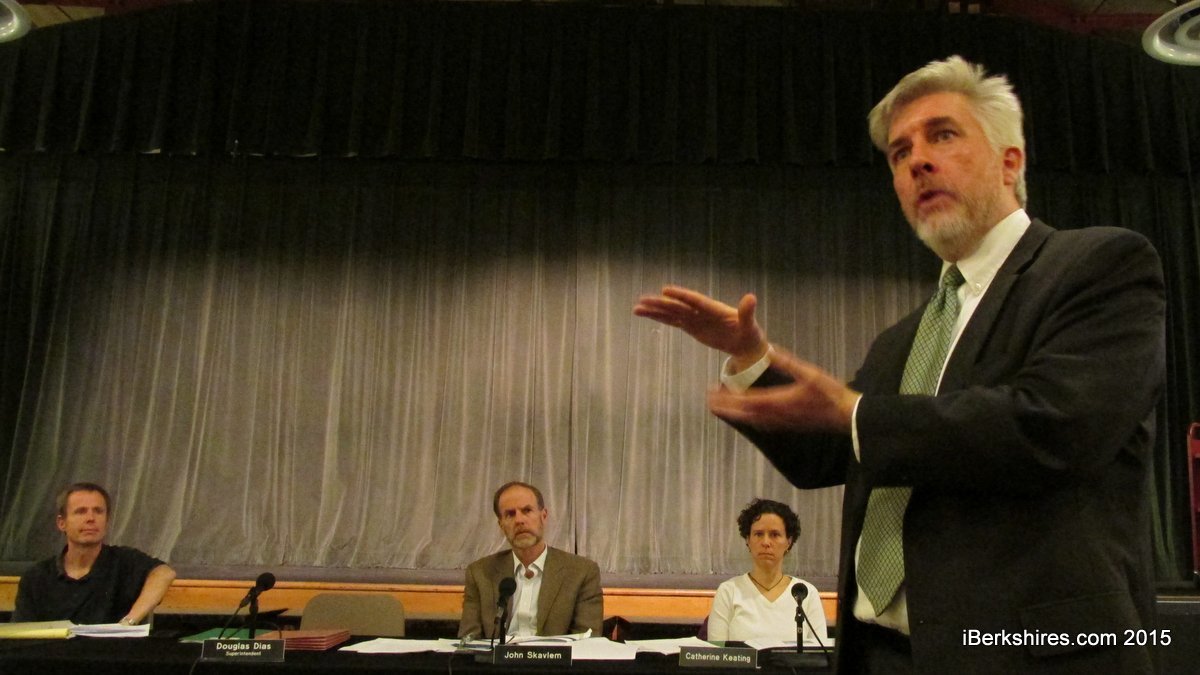
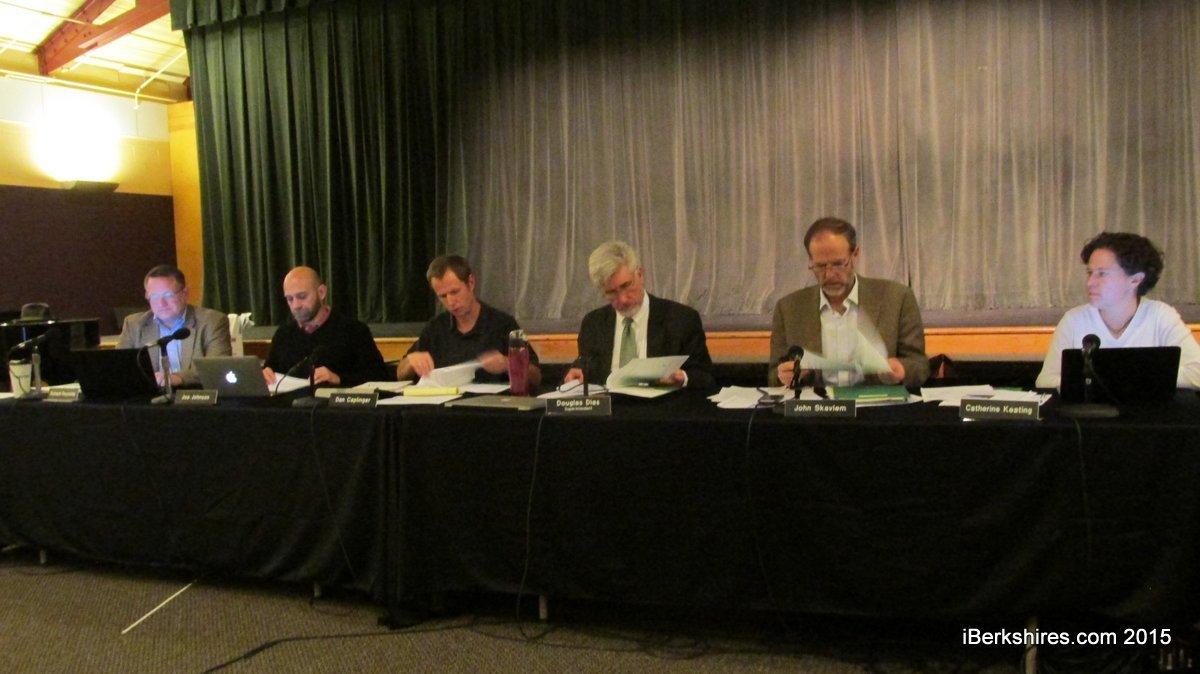
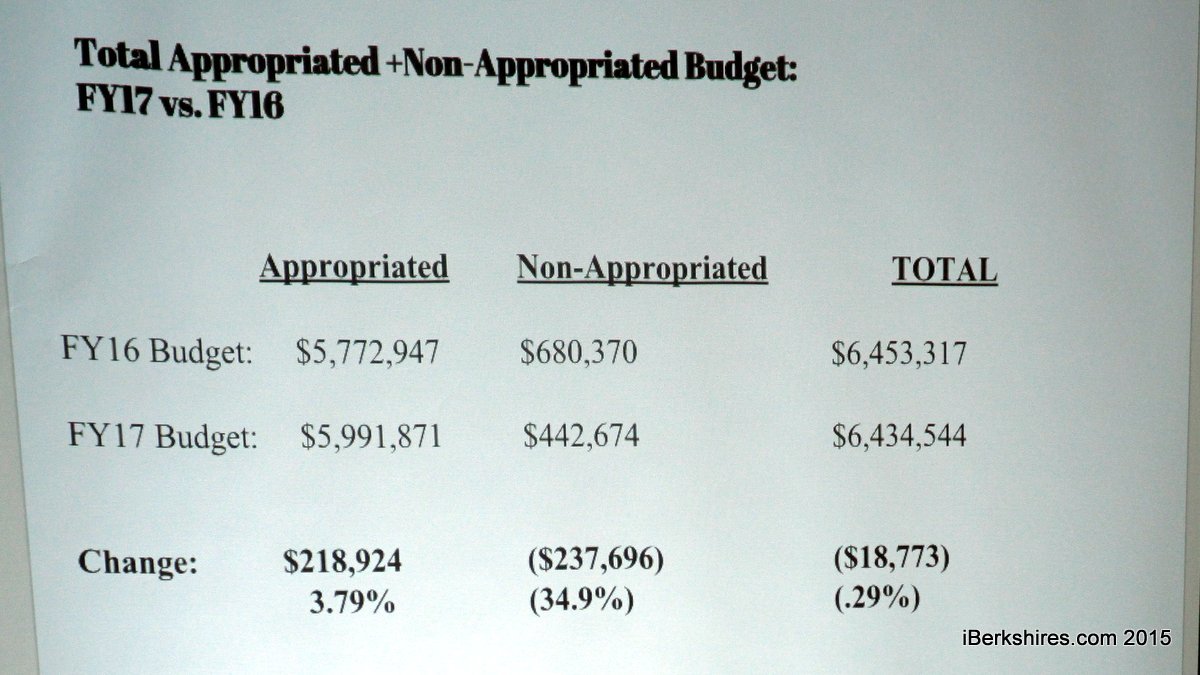
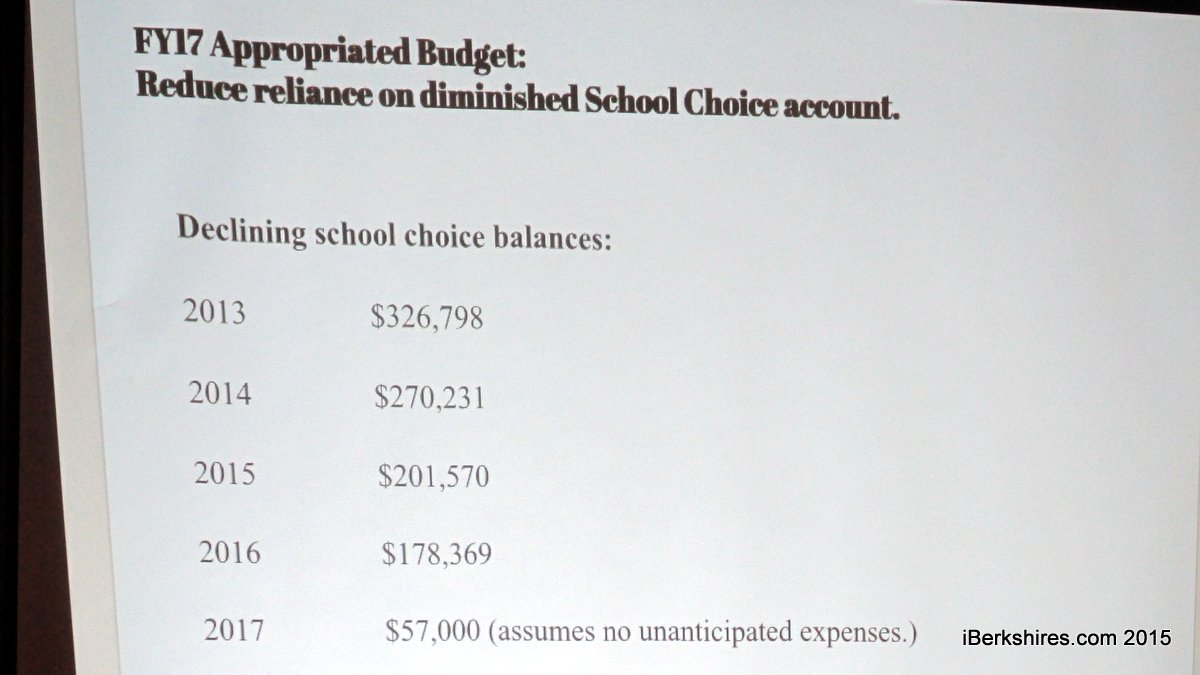
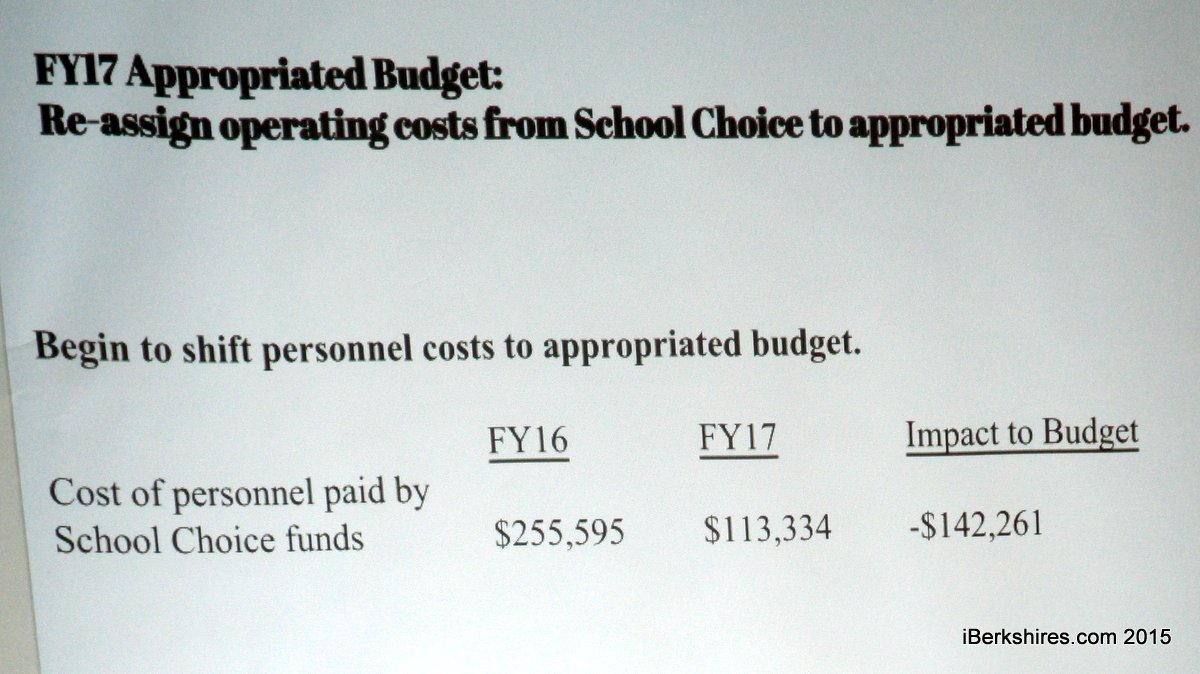
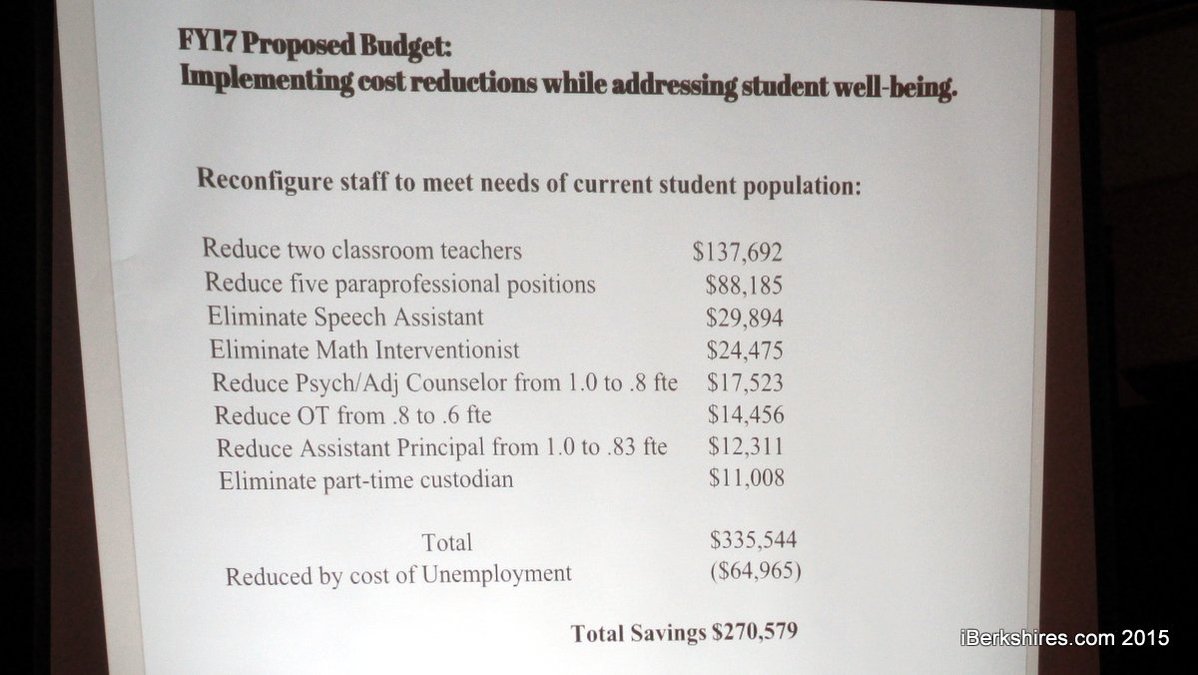
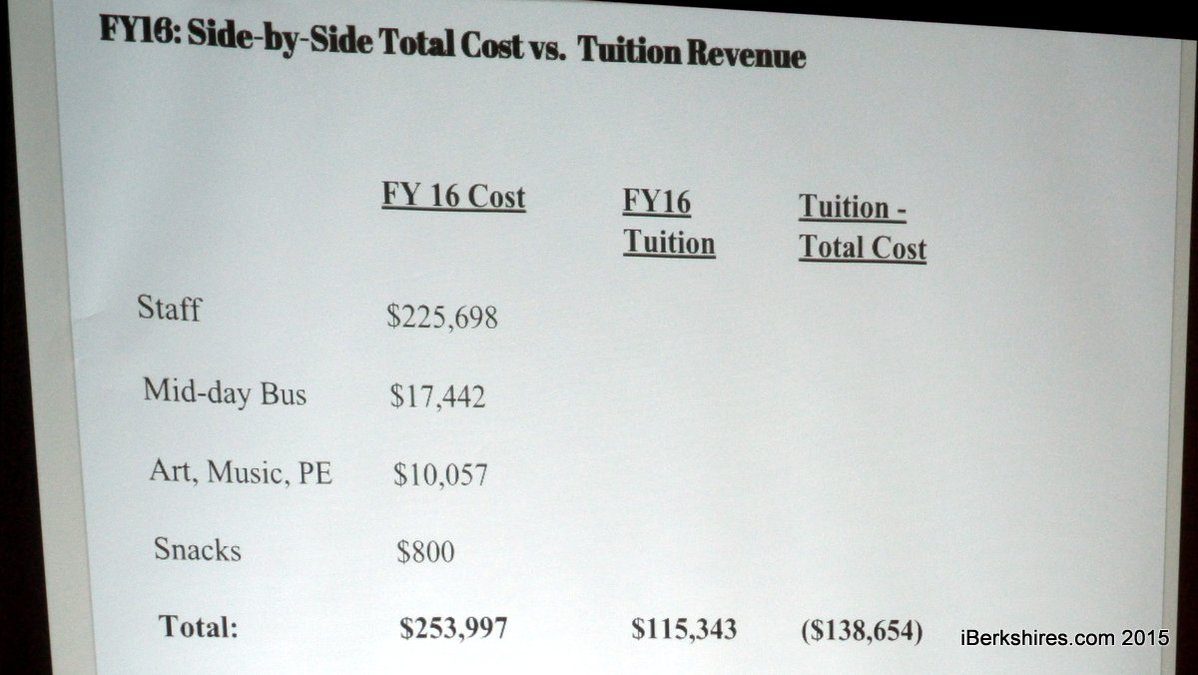
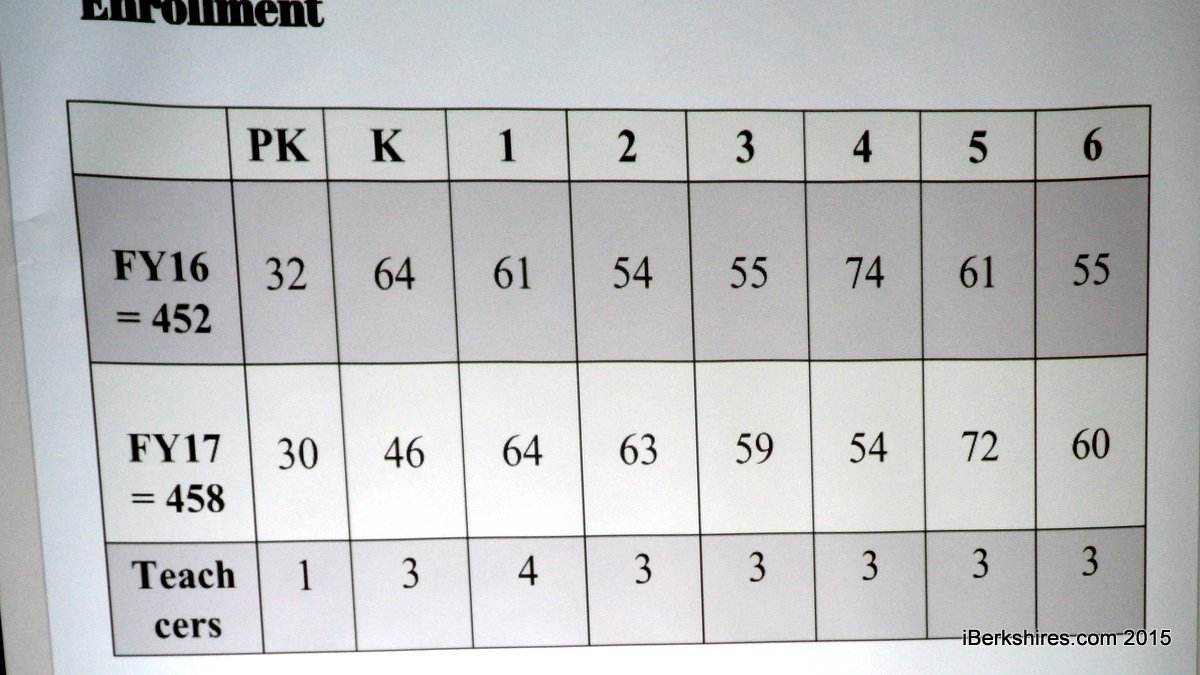
Williamstown School Officials Seek to Restore Budget Cuts
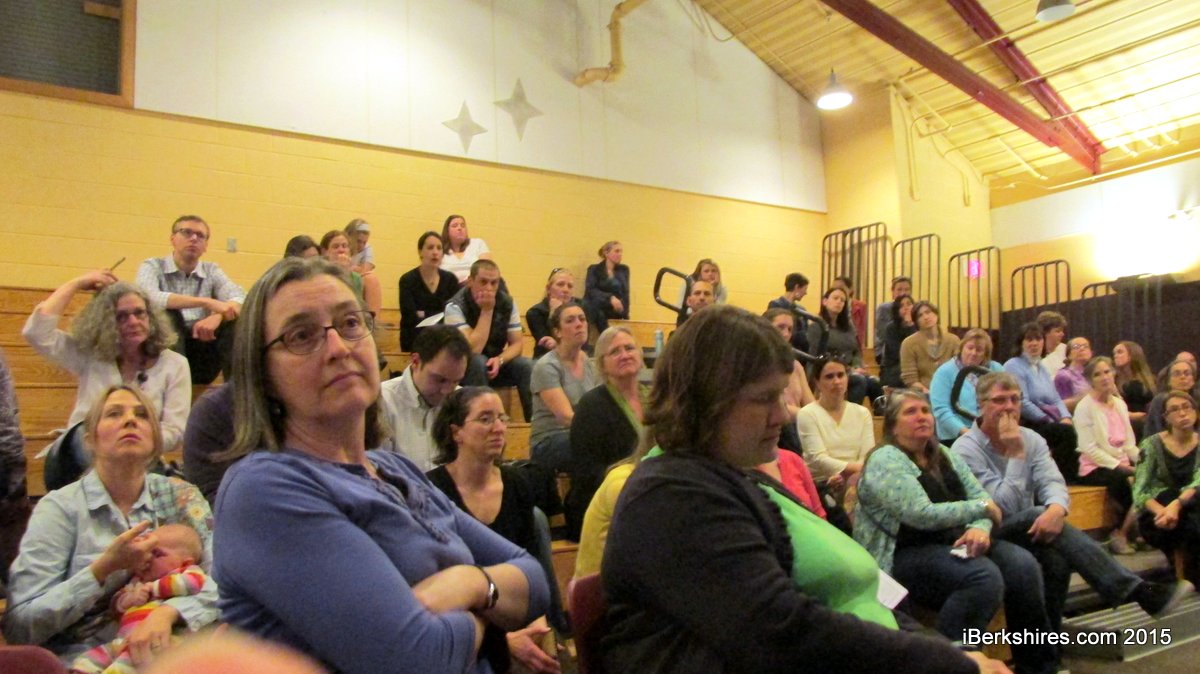
WILLIAMSTOWN, Mass. — The School Committee has sent its superintendent and his team back to the budget with a complex mandate to restore at least some of the cuts made to reduce next year's spending plan.
The decision came Wednesday night after a marathon 4 1/2 hours of presentation, public comments and committee deliberation.
Rather than sending a budget to the town's Finance Committee next Wednesday, school officials plan to reconvene that night to, hopefully, vote on a modified spending plan. The committee has until March 28 to submit a figure for town meeting.
"The public has been very clear," said Chairman Dan Caplinger, referring to the more than 100 residents, parents and staff who attended the lengthy meeting in the Elementary School's auditorium to protest the cuts. Some 70 parents had been at last week's budget presentation.
Superintendent Douglas Dias presented what he described as a responsible but difficult budget that would limit reliance on dwindling school-choice reserves. His proposal was to retain the current $57,000 in school choice funds as an emergency measure and begin building the account by depositing 30 percent of the funds each year.
"We must be able to address what we see as a budgetary shortfall," he said. "We need a concrete plan to build up reserves ...
"We need to work with the community to ensure all our kids are getting the support they need."
The 2017 draft budget is down overall from this year by about $19,000, or .29 percent, but increases the appropriated portion — the part paid by taxpayers — by more than $200,000, or 3.79 percent.
Dias said he had initially approached town officials with an appropriations budget closer to 5 percent but had been informed about the town's now longstanding efforts to limit increases to 2.5 percent annually.
That, plus a 14 percent increase in health insurance and depleted school-choice revenue, led to reductions in a number of areas, including enrichment activities like the Lego Robotics Challenge, Shakespeare and math and garden clubs.
There was a strong fear that losing good teachers and preschoolers would have a long-term negative effect on the school community, that once lost, those teachers and programs would be tough to restore. Others thought the budget "risky" in that it would not be flexible enough to accommodate changes in enrollment at the school or preschool.
Principal Joelle Brookner spoke of how difficult it had been to tell people she respected that they would be laid off.
"We're doing everything we can retain people ... how can we retain these amazing, amazing educators," she told the committee.
For more than two hours, parents sharply questioned the decision to the reduce the preschool program and lay off two teachers, five paraprofessionals and other staff, and reduce the hours of other professionals, including the school psychologist.
There were a number of impassioned pleas to retain the full-day 27-year-old Side By Side preschool that was begun as a way to provide services to children with special needs within an inclusive classroom. Dias has proposed retaining just the two half-day sessions.
A number of parents were concerned that these half-days would not provide the appropriate experience for children with needs but school officials say the program is being reconfigured with that in mind. The loss of the full-day program would also affect the number of slots for tuition children.
Many questioned the wisdom of cutting a program to save what they felt was a limited amount of money, about $57,000 or so that would be reallocated to other programs.
"We're talking about a program that did wonders... I don't think it would be fiscally responsible to close it," said Maury Lawson, whose children had attended the preschool. "I think we're going to be shooting ourselves in the foot."
Sharon Claffey teared up in recalling how important the program had been for her late daughter, Eve, in creating friendships and a supportive community.
A Change.org petition in favor of retaining the full-day preschool had 251 signers as of Thursday morning.
"I think you've heard from the community how important that program is," said Nancy Garrity, who started a petition.
Hugh Daley advocated for keeping the two teachers and adding on a curriculum coordinator.
"I know this is a tough budget, but I think you can find a way to bring those teachers back," he said.
Committee members also questioned the long-term effects of the reductions on the school's operations and reputation, and the wisdom of cutting back so drastically at this point.
Committee member Richard Reynolds said Williams College anticipates adding up to 10 more employees a year and that Cable Mills' affordable units were opening, both factors in young families moving to the area.
"Why do we want to start building our reserves this year?" he said, pointing to the college's endowment as a buffer against unexpected maintenance issues.
Dias said he didn't want to be scrambling for funds in the middle of the school year to deal with unexpected costs.
"I feel strongly that we need to keep what little reserve we have now," he said.
"I don't think there's that much seed corn to eat anyways," said member Joseph Johnson, feeling that smaller class sizes and keeping teachers should be a priority. "We'd love to keep them all and it's really tough."
Committee members debated whether to ask for more funding on the floor of the annual town meeting, but dismissed the idea as too confusing because it would be difficult to make the case to voters.
"We should go to the Finance Committee with what we want rather than do this on the floor," said John Skavlem.
The preschool's full-day teacher Fern Murtagh said she did not envy the School Committee's position and the hard choices it has to make.
"Your vote will set the future for how children and families in Williamstown value inclusion," she said.
"I would like to urge you to vote on a budget that supports quality, inclusive early education. Let the Finance Committee of Williamstown, who has studied the town finances, decide if funding a budget that supports quality early education along with maintaining quality education in the upper grades, is important to this town."
Tags: budget cuts, fiscal 2017, WES, WES_budget,


